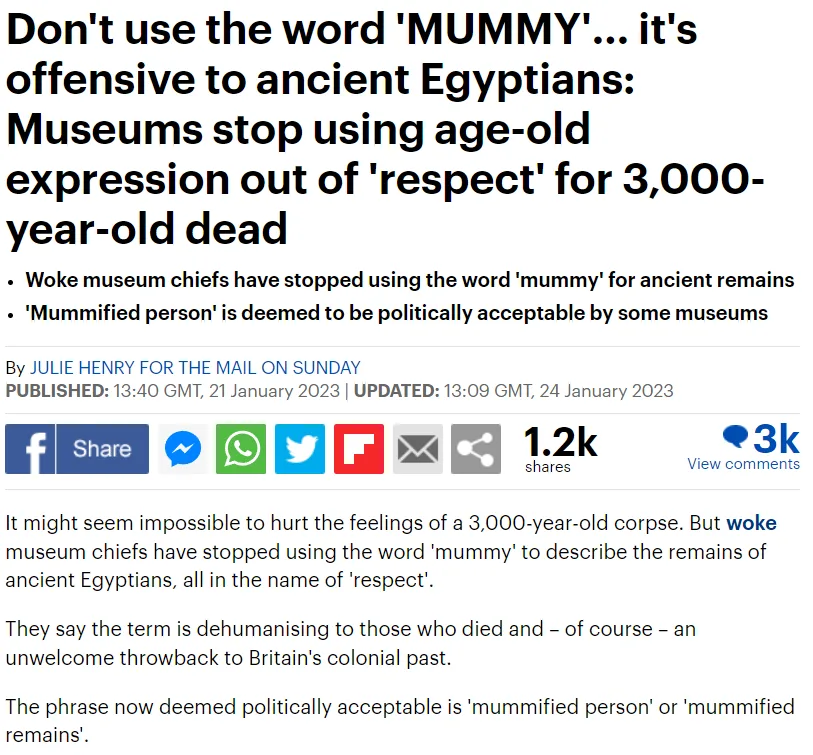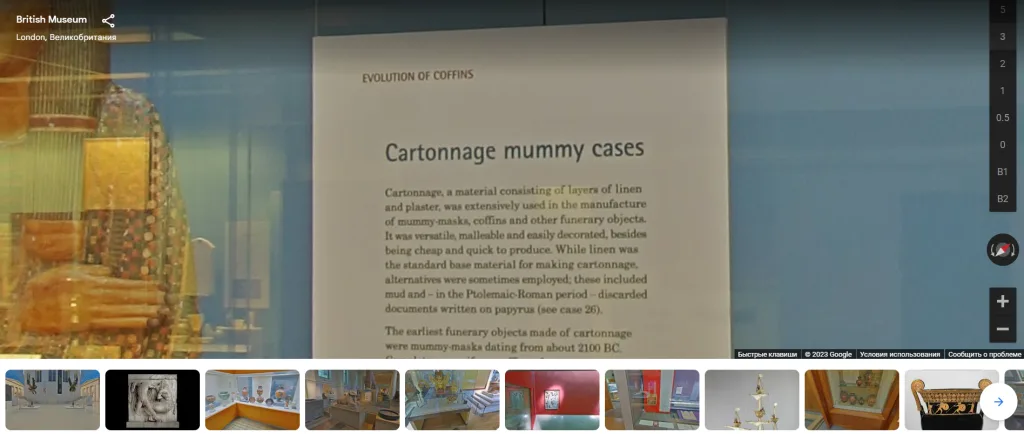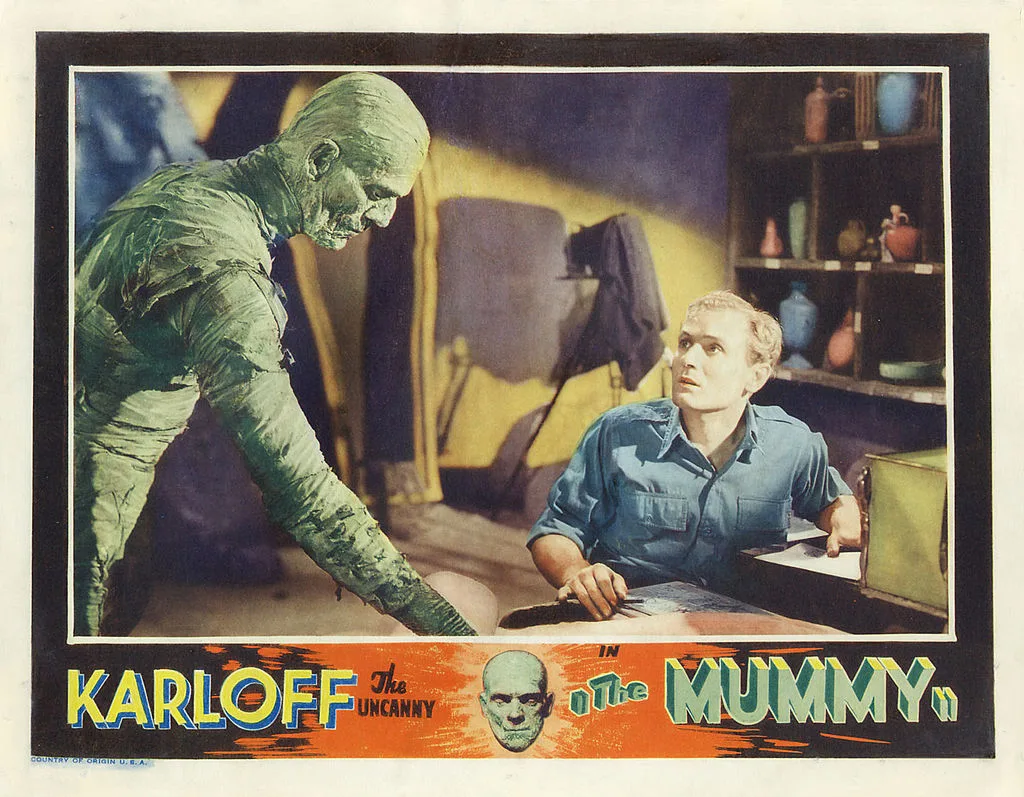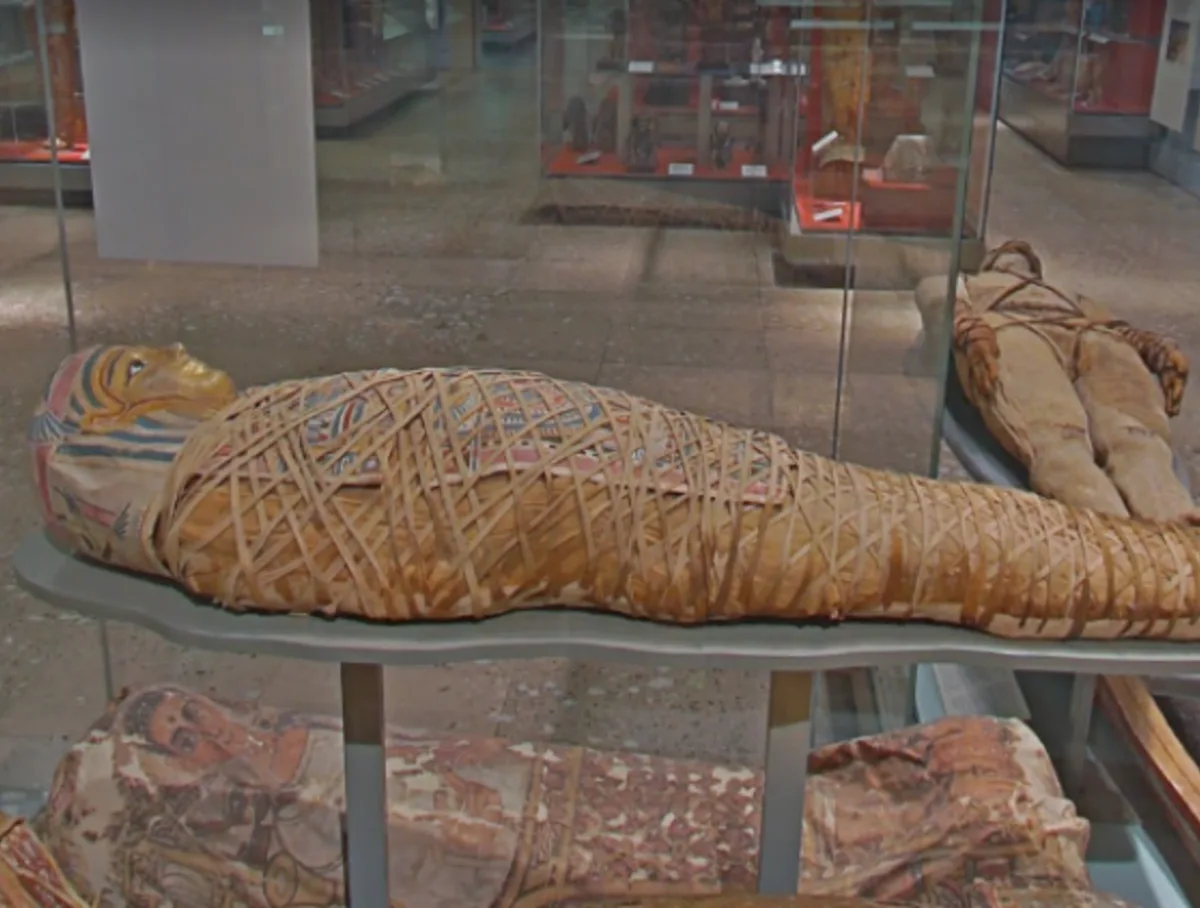At the end of January 2023, many media reported that several museums in the UK were abandoning the word “mummy”, which allegedly insults the memory of deceased people. We decided to check whether such a decision was actually made.
The news about the mummy appeared in many major Russian media: for example, they wrote about it “RIA Novosti", "Moskovsky Komsomolets" And "Komsomolskaya Pravda" According to Komsomolskaya Pravda, the ban on the word “mummy” was introduced out of respect for the Egyptians who died thousands of years ago. Instead, it is suggested to say “mummified person”. Even the Russian Foreign Ministry reacted to the news. Official representative of the department Maria Zakharova in her Telegram channel commented media publications as follows: “Firstly, tolerance cannot be counted without the opinion of the mummy. Secondly, it would be better to think about respect for the living.”
Almost all Russian media referred to the article in Daily Mail. January 21 newspaper indeed published note entitled "Don't use the word 'mummy': British Museum stops using outdated expression out of respect for those who died 3,000 years ago." Judging by archival copies, on January 24 the title changed slightly: instead of “British Museum” it now contains the word “Museums”.

The article mentioned three museums: British Museum in London, Museum of the Great North (Hancock Museum) in Newcastle and National Museum of Scotland in Edinburgh. January 26 agency Reuters issued a detailed analysis of the information presented and came to the conclusion that there are no such prohibitions in the British Museum. Journalists spoke with representatives of the museum, and they explained that the word “mummy” is used, as before, both during excursions and on signs for exhibits. You can verify this by going to the museum’s website. In rooms 62 and 63 of the British Museum the exhibition “Death and Afterlife in Egypt: Mummies" Moreover, you can “walk” through the halls virtually, and there are clearly visible explanations with the word “mummy” for the sarcophagi on display.

However, by the time the analysis from Reuters appeared, the Daily Mail had already changed not only the headline, but also the article text. It included a comment from the British Museum: “The Museum has not banned the use of the term mummy, it is still used in our halls. Recently, new explanatory plaques have used the term "mummified remains" with the addition of the name (if known) of the person who was mummified."
But the newspaper was not mistaken with the other two museums. The Great North Museum in Newcastle has indeed begun to avoid the word "mummy". New York Post cites the opinion of the curator of the archaeological department of the museum, Joe Anderson, who back in 2021 wrote about the changing attitude towards antiquities. “Many of us grew up with the legends of the 'curse of the mummy' and films with supernatural monsters. Such ideas, imposed by popular culture, distort our understanding of mummified people and dehumanize them.”

In the same blog entry, Joe Anderson refers to the experience of colleagues from Edinburgh. The National Museum of Scotland, he said, has already abandoned the use of the word “mummy” in explanations of exhibits and on the website.
Indeed, the Museum of the Great North is currently holding excursion entitled “Who were the mummified people presented in the museum?” Obviously, her goal is to expand knowledge about mummies and overcome long-standing stereotypes. At the same time, there is no ban on the use of the word “mummy” - it exists, for example, in section, dedicated to the description of the museum’s treasures, and in catalog exhibits on the site. That is, as the museum employee said, old inscriptions and names are preserved, new ones are compiled taking into account the comments made. There is the word "mummy" on the website of the National Museum of Scotland, where presented a rich collection of death masks and sarcophagi.
Thus, the tendency to abandon the word “mummy”, which denotes the embalmed body of an inhabitant of Ancient Egypt, does exist. Egyptologists from two British museums (in Newcastle and Edinburgh) two years ago decided to emphasize that each mummy was once a living person with his own name and his own history. At the same time, there was no talk of banning the term “mummy,” but it is used less and less. And at the British Museum in London they reacted favorably to their colleagues’ initiative, but have not yet made radical changes. The Daily Mail, with its eye-catching headline, got several facts and wording wrong and then rushed to correct them.
Cover photo: Egyptian mummies in the British Museum / British Museum
Mostly true
- Don't be fooled: fake news about museums
- Reuters. Fact Check-The British Museum has not banned the word “mummy”
If you find a spelling or grammatical error, please let us know by highlighting the error text and clicking Ctrl+Enter.






